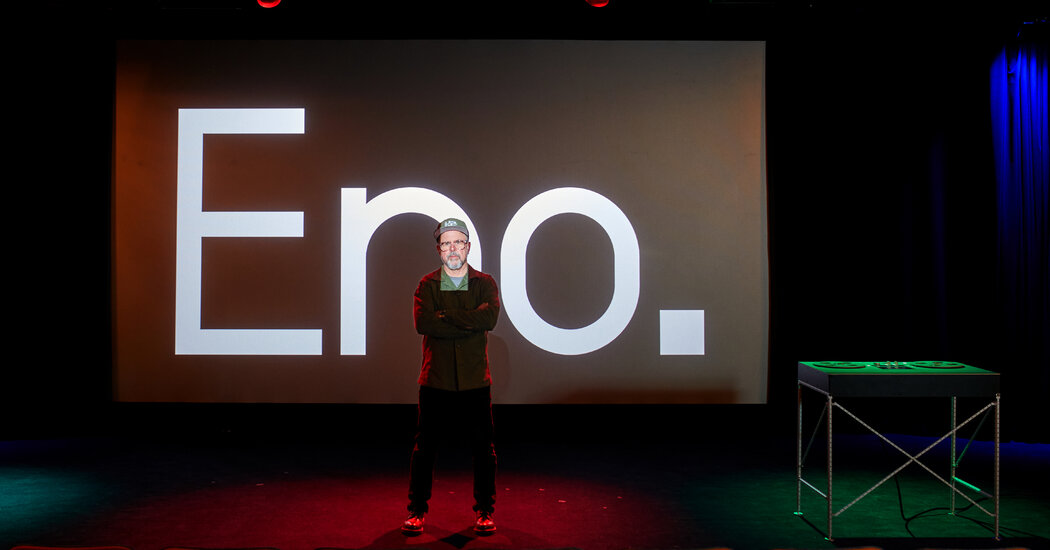Thanks to a software program, the length, structure and contents of the movie are reconfigured each time it’s shown. It’s the only way the musician would agree to the project.
Gary Hustwit had a simple wish: to make a documentary about the visionary musician Brian Eno. When that wasn’t possible, he devised a far less simple approach. He made 52 quintillion documentaries about Eno.
At a time when it seems like there’s a movie about every band that’s recorded even a 45, Hustwit’s “Eno,” opening Friday, is unlike any other portrait of a musician. It’s not even a portrait, because it isn’t fixed or static. Instead, Hustwit used a proprietary software program that reconfigures the length, structure and contents of the movie.
“Every time it plays, it’s a different movie,” Hustwit told an audience in May at the film’s New York premiere. “I’m surprised every time I see it.”
His collaborator, the digital artist and programmer Brendan Dawes, explained that because of the variables, including 30 hours of interviews with Eno and 500 hours of film from his personal archive, there are 52 quintillion possible versions of the movie. (A quintillion is a billion billion.) “That’s going to be a really big box set,” Dawes quipped at the premiere.
Movie theaters are still guided by “a 130-year-old technical constraint,” Hustwit said over lunch the next day at a Chelsea restaurant. “We can use technology as a structural tool to do interesting things with the narrative. This idea that a film has to be set in stone and always linear is obsolete, I think. There’s another possible path here for filmmaking going forward.”
